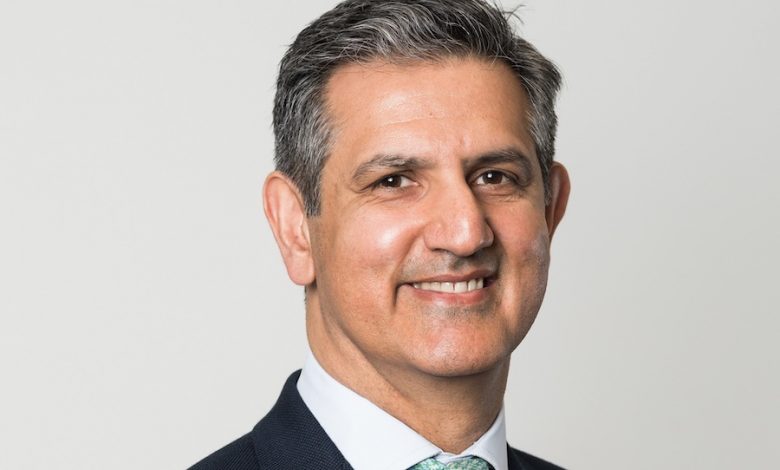Survitec: A roadmap towards more effective safety compliance

Baba Devani, Survitec’s recently appointed managing director, marine, discusses with Maritime CEO the reasoning behind the reorganisation of the safety specialist’s marine division
Devani’s appointment in February came as part of the company-wide restructure implemented last year by Survitec’s new CEO, James Drummond.
After a comprehensive review of its organisational structure, Survitec is reorganising its business into two separate and distinct divisions – Marine and Aerospace and Defence – to focus more on its customers with operations in these different industry sectors.
Commenting on the maritime industry specifically, Devani says that a significant aspect of the refocus is to implement a culture change across the company, shifting the mindset from that of product supplier to one of safety partner.
“As the maritime industry’s leading safety partner, we will be able to better focus on the creation of more effective value propositions and solutions for the many segments within the industry. No single solution fits all, after all.
“Cruiseship owners have different needs to oil and gas vessel operators and they will have different needs to, say, tanker and bulk carrier operators. It’s important to take our very strong product capability and service centre footprint and turn these into offers and solutions that match exactly the differing needs of the industry.”
This strategic shift in focus some might say is visionary given the challenges the industry faces with reduced charter rates, volatile oil prices, the greater use of technology, and the slew of new safety and environmentally-focused regulations.
“There is a global shift towards ship operations that are no longer simply based around cost-efficiencies. Obviously, cost factors remain a driver, but shipowners recognise the genuine value of a committed approach to safety, understanding that this is paramount not only to long-term commercial goals, but also to their company’s reputation and value.”
Devani points out that although the likelihood of the need to use safety equipment may be relatively low, the impact of failure of this equipment when needed would be very high in terms of financial and reputational damage.
“These days you have to demonstrate that you have a sound maintenance process in place, that you have proper testing, and that you partner with a provider that has rigour in its product development cycle and quality control procedures.”
Survitec’s transition from equipment supplier to safety partner is intrinsic to enabling ship operators more effectively navigate the gamut of safety-related regulations and responsibilities they have towards ship and crew, irrespective of ship type, operation or location.
“The new structure will mean that our Asia Pacific customers, for instance, will have the same experience as our customers in the Americas or Europe. They will have access to the same Survitec technical and service personnel capable of dealing with all their specific needs at an international, regional and local level.”
The organisational changes taking place will also have a beneficial impact on Survitec’s supply chain with the appointment of Claude Sada as Director of Operations and Supply Chain. To this end, Survitec is taking actions to ensure that it can deliver products at the right place and the right time.
With much of Survitec’s reorganisation based on the five principles of LEAN – value, value stream, flow, pull, and perfection – which aims to remove waste from the manufacturing process – Devani is quick to point out that LEAN is not a euphemism for redundancy.
“LEAN is simply a very effective way of optimising operations for the betterment of our customers. We’ve already completed a couple of projects using the methodology, but it requires education throughout the organisation. The level of support received so far has been very encouraging, very impressive. We hope to have everyone working to the LEAN principle within the next 18 to 24 months,” Devani says.
This new way of working internally supports Survitec’s external transition. It draws together a wealth of technical, regulatory and industry knowledge, combined with an extensive portfolio of high-end safety products, a global network of over 70 Survitec stations and 400 service-station partners, to deliver greater value for customers. Over time the approach will filter through the company in a variety of ways, but one tangible way it will be realised immediately is through Survitec’s SOLAS 360 service.
Created for the all sectors of the marine industry, the service maps out a full inventory of a ship’s safety equipment and then Survitec manages the due dates for servicing and inspections, alerting the ship’s master and operator at 90, 60 and 30-day intervals in the run up to a regulatory deadline. Survitec then ensures that equipment is maintained, serviced, inspected and certified accordingly.
SOLAS 360 can also include Survitec’s liferaft exchange concept, which significantly reduces lengthy servicing times by providing newly overhauled and refurbished rafts as required.
“By positioning ourselves as the maritime industry’s safety partner, owners and operators can genuinely commit to compliance and safety without simply viewing it as a box-ticking exercise,” Devani says. “The refocused Survitec takes our customers beyond compliance.
“The Survitec benchmark is set much higher because we’re here to protect people’s lives. We want to create propositions that genuinely represent value for those customers who are not solely driven by price.”
